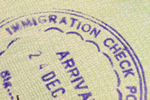To VPN or not to VPN?

To VPN or not to VPN?
For digital nomads and expat professionals for whom worldwide travel is a part of the job, it’s more or less essential as it gives the freedom to surf the net on any subject as well as keeping private communications out of the wrong hands. Although the majority of popular expat destinations offer excellent internet speeds, in some far-flung locations and developing countries a VPN can also provide faster internet speeds. Best of all, a VPN is the only way to surf freely in politically restrictive countries such as China.
Nowadays, total internet anonymity and invisibility are possibly the best ideas, no matter where expats are located or whichever region they’re exploring. For those based in China it’s essential as it’s the only way to guarantee access to websites hosted in the outside world. The ‘Great Firewall of China’ includes VPN-blocking software, but the VPNs themselves have the equivalent software to counter it. Even so, many don’t have servers based in the country, meaning Chinese-specific sites can’t be accessed. Fortunately, expats living inside the Communist state can access all they need simply by tunnelling out via a VPN.
If you’re unfamiliar with VPNs and how they work, the first question to ask is whether the chosen provider’s site keeps logs. The majority of providers now don’t, for obvious security reasons, so any personal information which runs through your VPN can’t be accessed by outsiders, nor can your email address be sold on to advertisers and other interested third parties or authorities. In this way, your crucial online privacy is guaranteed.
For expat travellers and digital nomads, keeping up with favourite Netflix services can be frustrating, but several VPNs do allow access, a fact which, almost understandably, tends to annoy Netflix itself, known as it is for blocking several popular VPNs from accessing favourite shows except in designated regions. Nowadays, most VPNs have a fix for this, meaning their users are able to watch popular channels when and where they please. Another tricky subject is file-sharing, not officially supported in order to protect copyright material from unauthorised downloads.
Devotees of the BBC’s offerings via iPlayer is another issue as regards access, as the British broadcaster is infamous for blocking access except for those resident in the UK who’ve paid up for a TV license. As with Netflix, some VPNs have found a way to counter the Beeb’s attempts, with the fix also working for Sky Go, several sports channels and other UK-based providers. All told, in this day and age, getting a VPN is an essential option for expats and travellers as well as those who simply want online privacy as well as fast access to the services they need.
Related Stories:
- China restricts VPN usage to keep coronavirus news under wraps - February 27, 2020
- Brit expats missing their UK favourites should consider a VPN - February 26, 2020
- Expatriate professionals advised to use a VPN - September 21, 2018
Latest News:
- Tips on a trouble-free relocation as an expat overseas - July 20, 2020
- Expats find peace in the covid-19 refuge of Dahab town - July 20, 2020
- Is Kuwaitization the unintended result of the oil price crash? - July 20, 2020
- Expats unhappy abut changes to Korean points-based visa system - July 17, 2020
- Chiang Mai and Bangkok no longer bargain locations for expats - July 17, 2020
- Expats in Malaysia still banned from overseas travel - July 17, 2020
- Vietnam welcomes expats to its safe, affordable lifestyle - July 16, 2020
- Asian tiger economies reach out to expats in Hong Kong - July 16, 2020
- HSBC Asia to cut back on internal expat relocations - July 16, 2020
- Tips on integrating for newly-arrived expats - July 15, 2020


